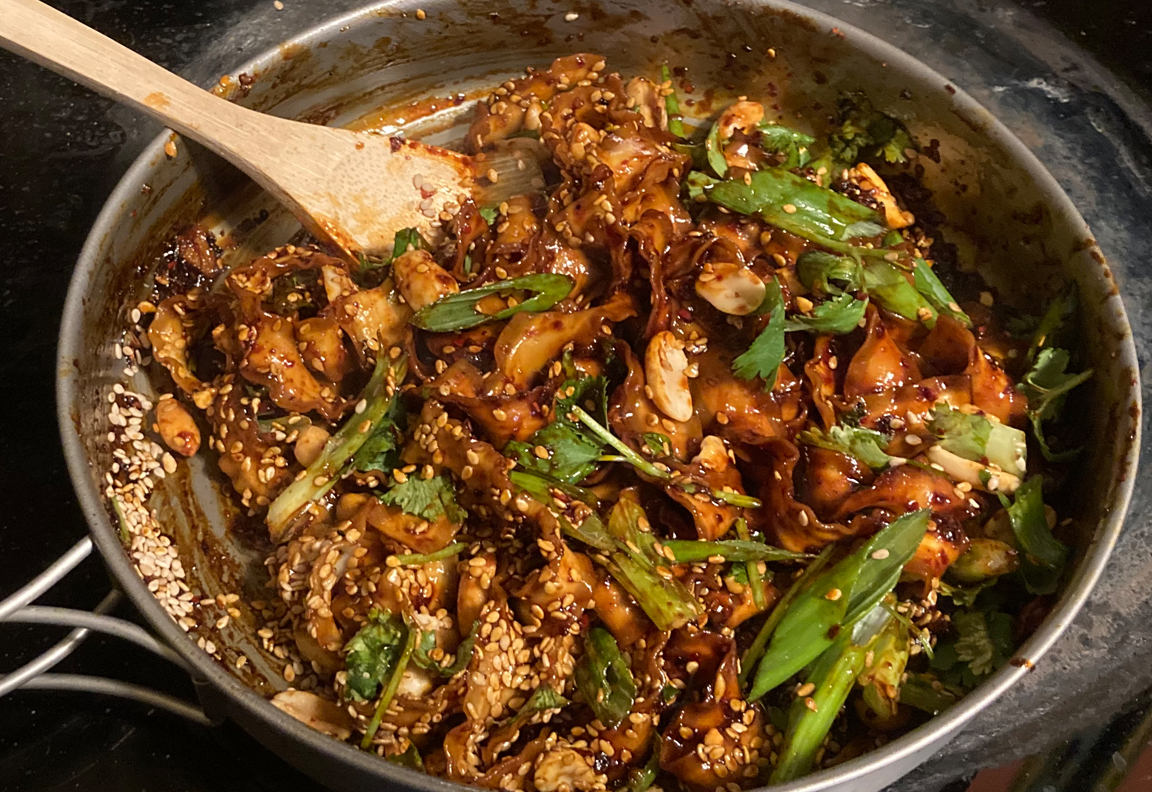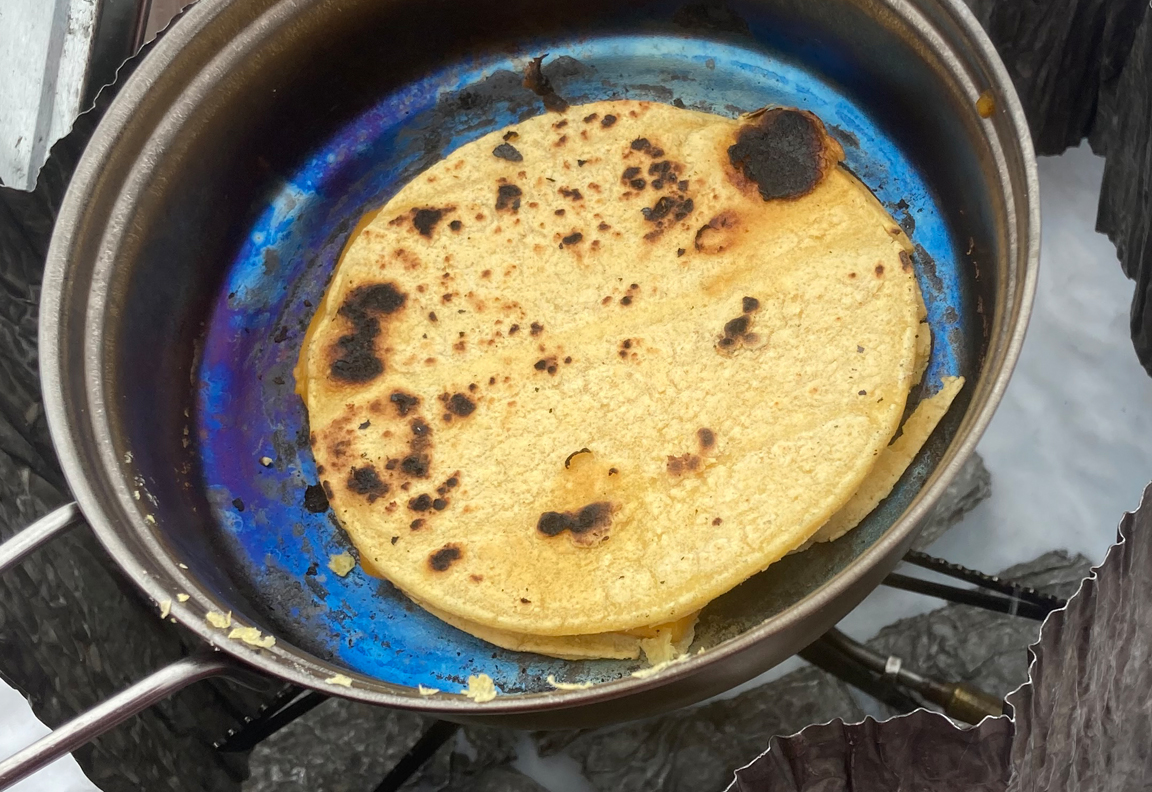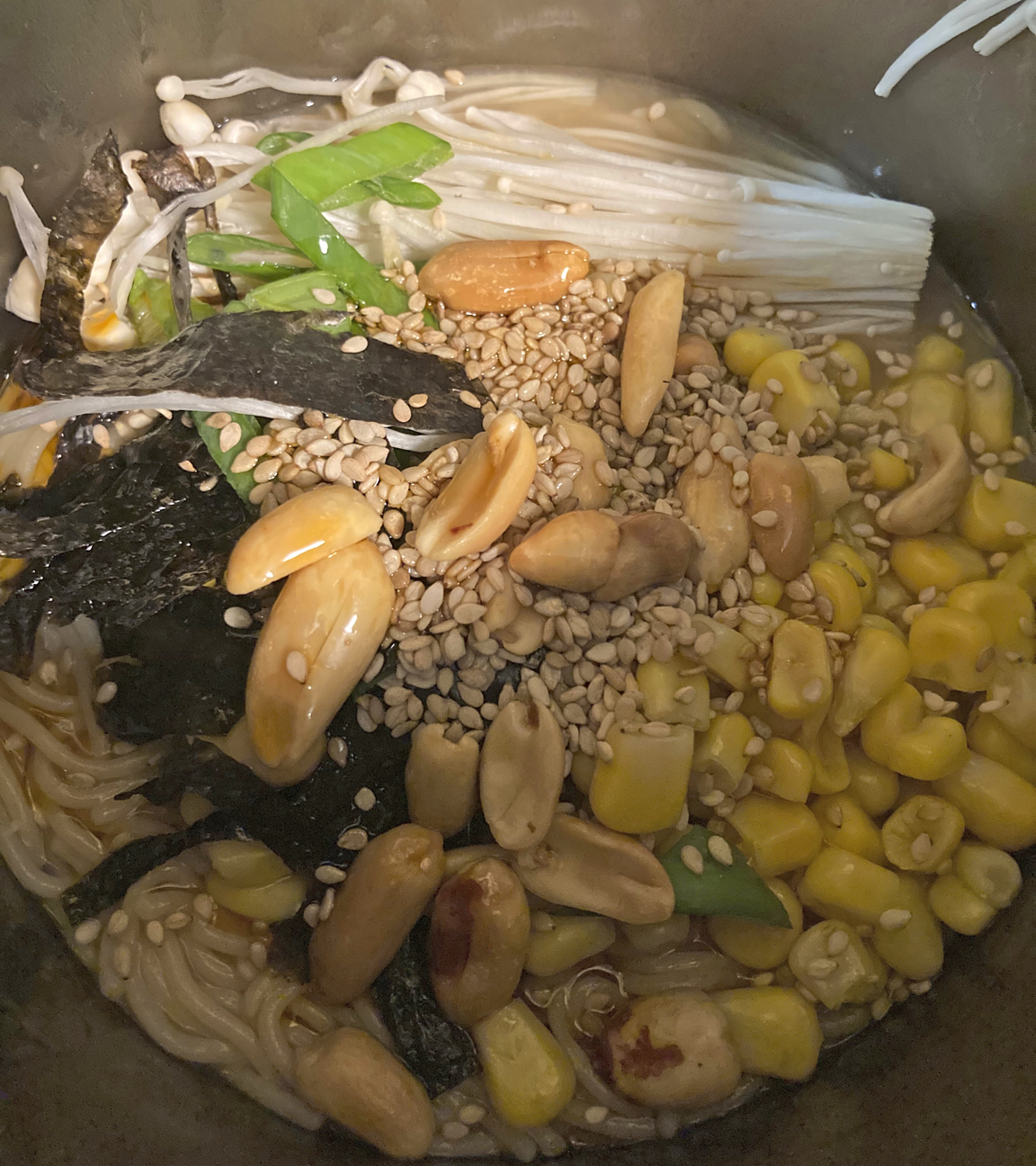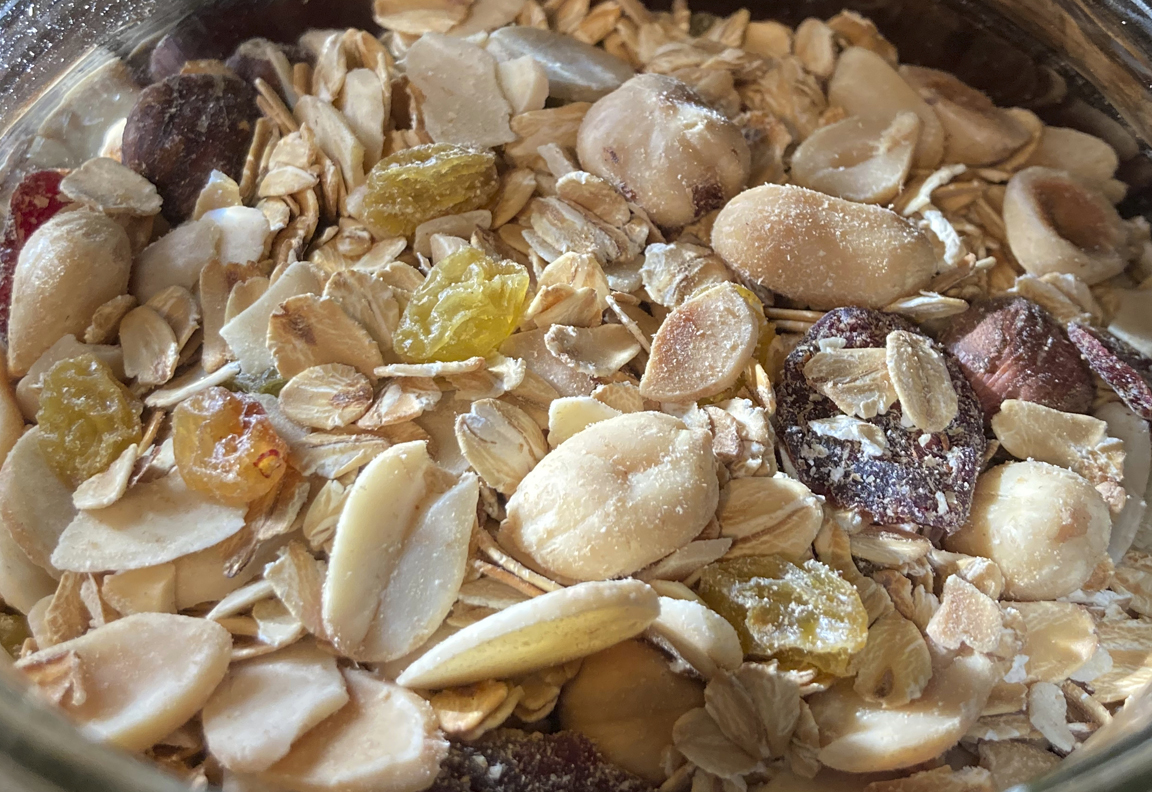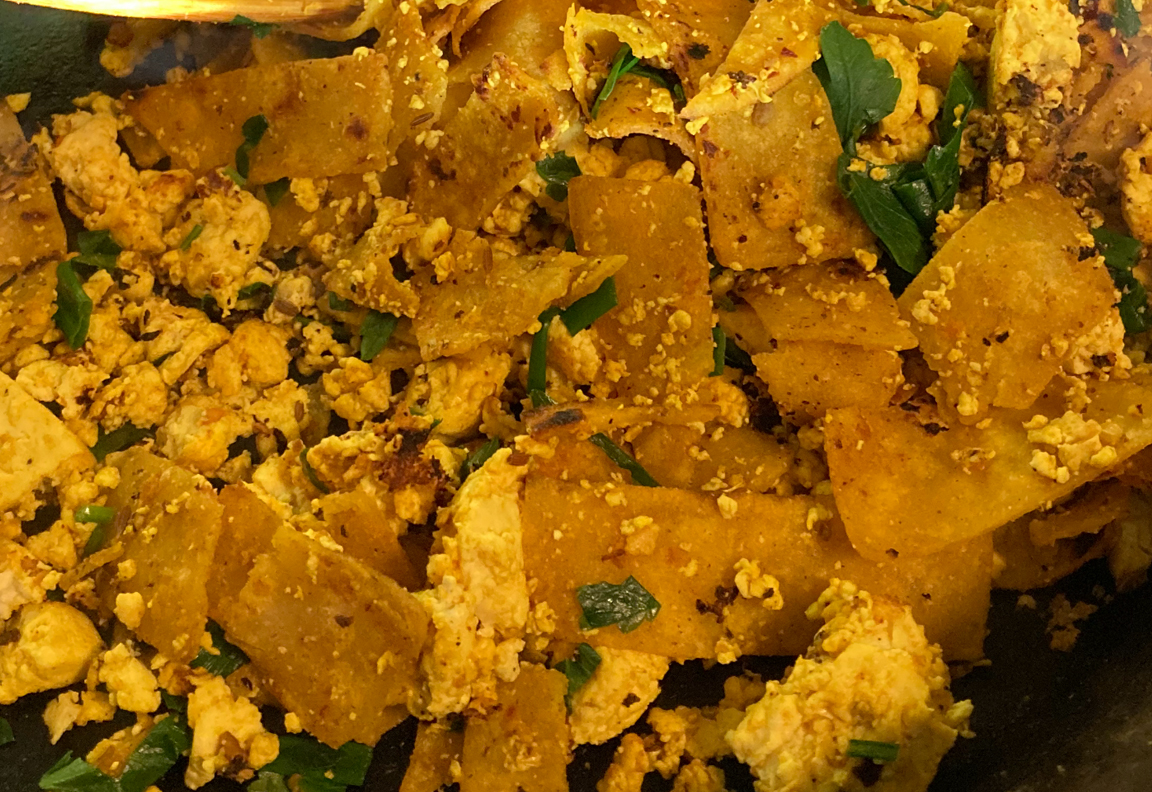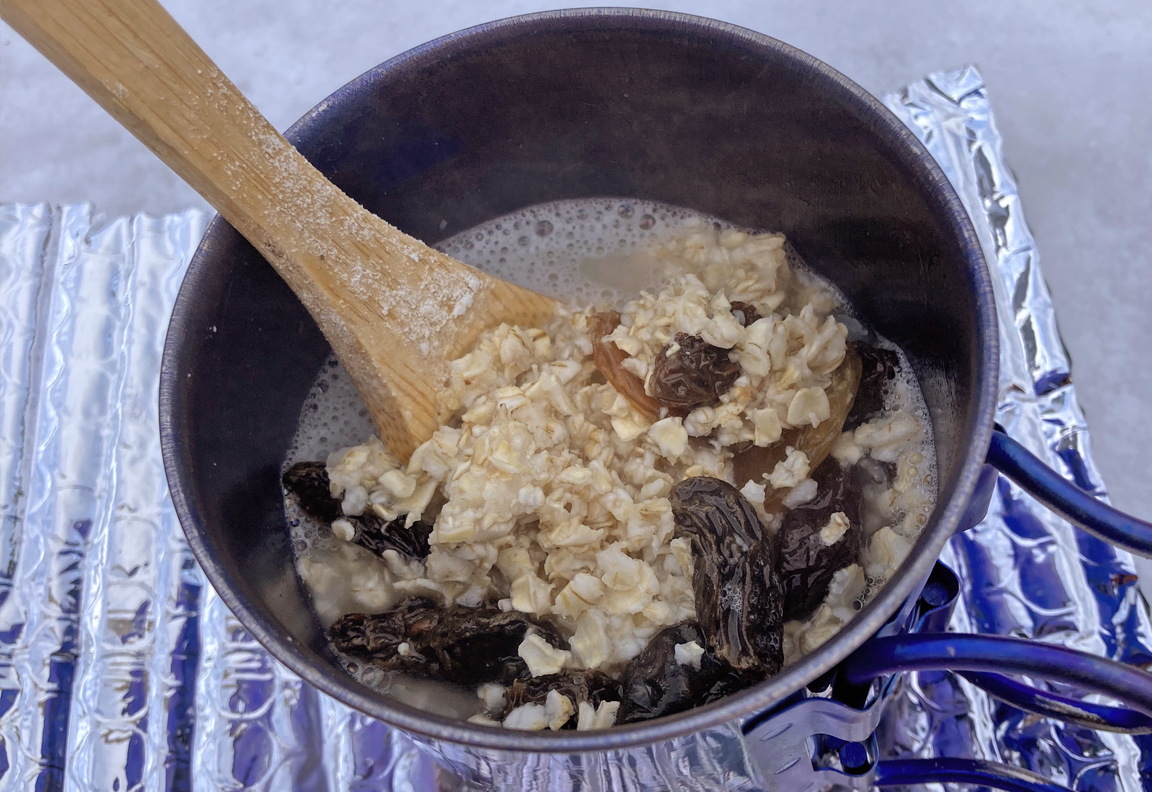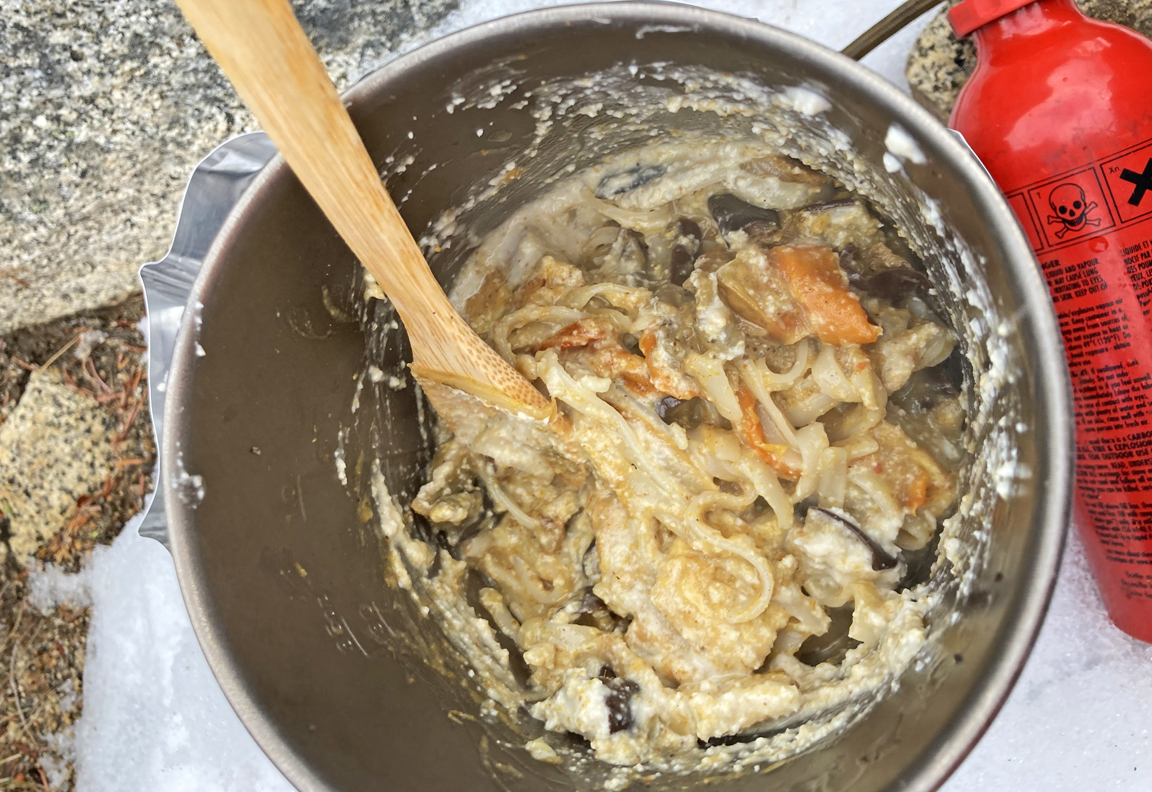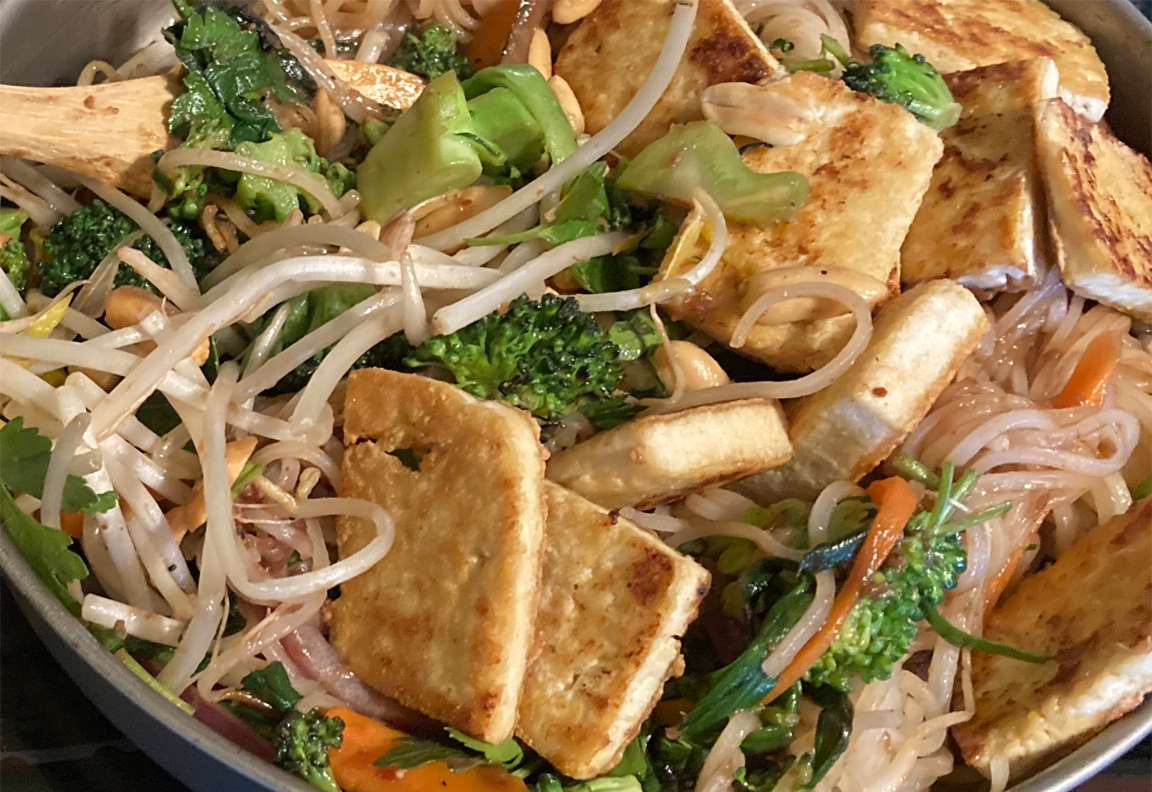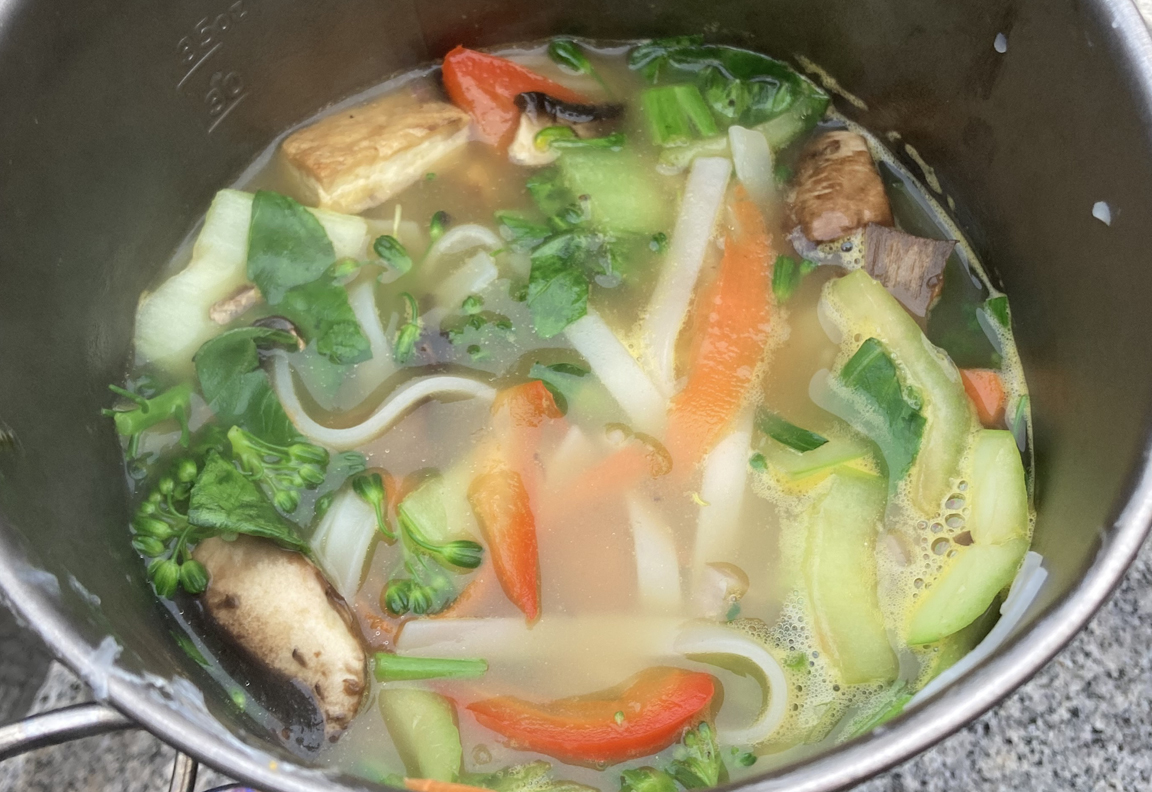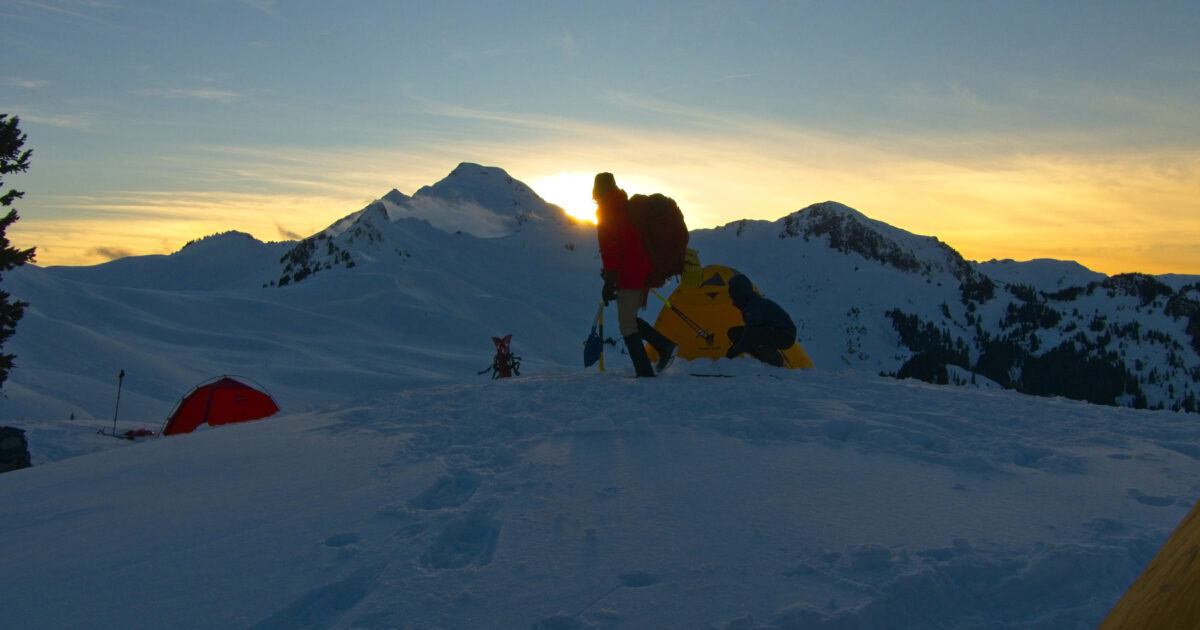Simple, fresh, and quick!
This is the dish I make more often than any other on winter trips, especially when the temperatures get near or below 15ºF. It is both delicious and practical. The ingredients are situated in a soupy broth, making it easy to reheat if necessary without any risk of the food burning or sticking to the pan. This dish is ideal for winter backpacking because it is hot, tasty, and helps you rehydrate after a hard hike. Phö is a Vietnamese meal popular in the Pacific Northwest. It can be prepared with different ingredients. It usually consists of a savory broth; noodles; fresh vegetables; herbs and sprouts, tofu, peanuts, or some type of meat; and finished with Chili crisp or Sriracha and/or Hoisin sauce.
